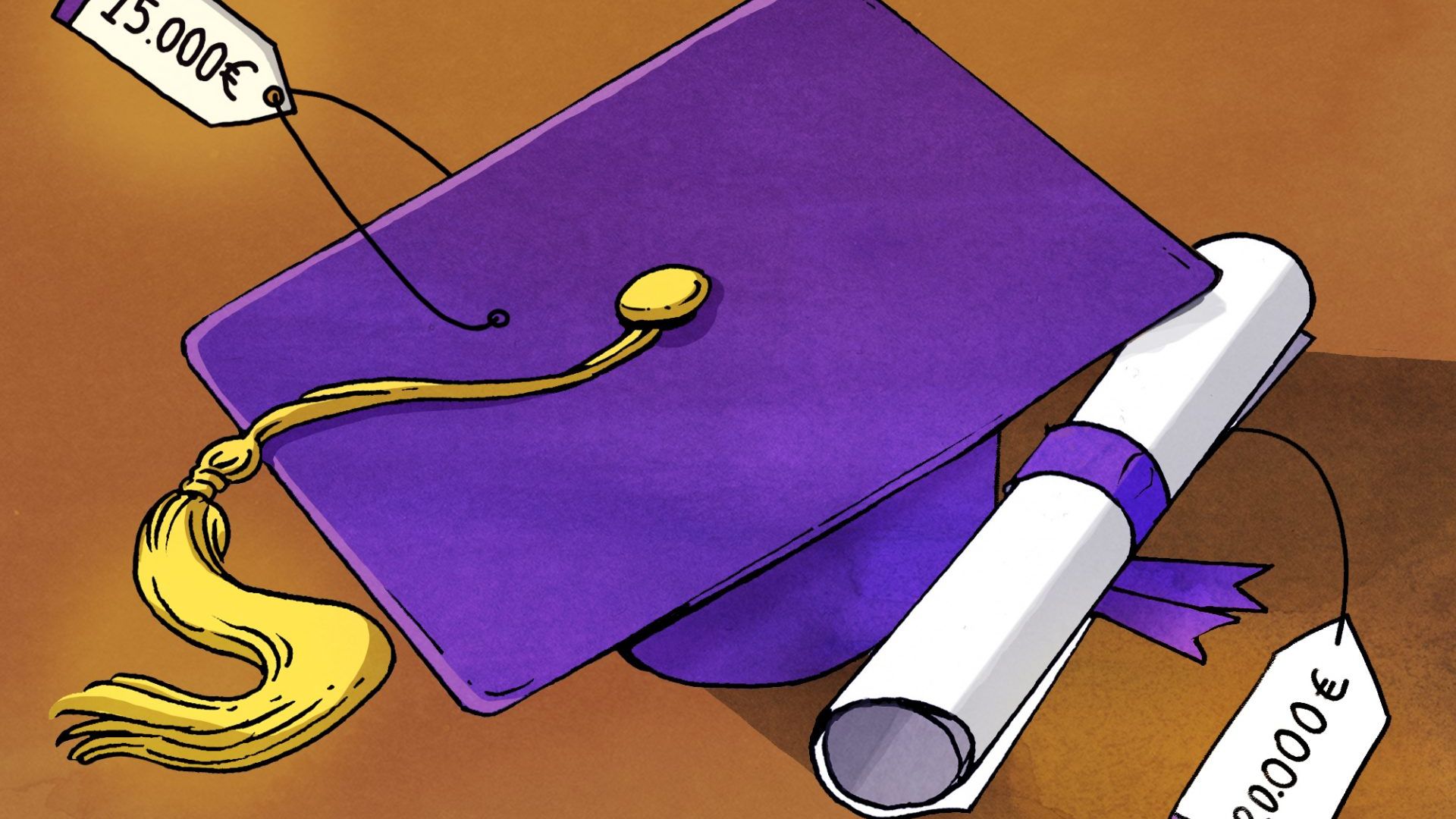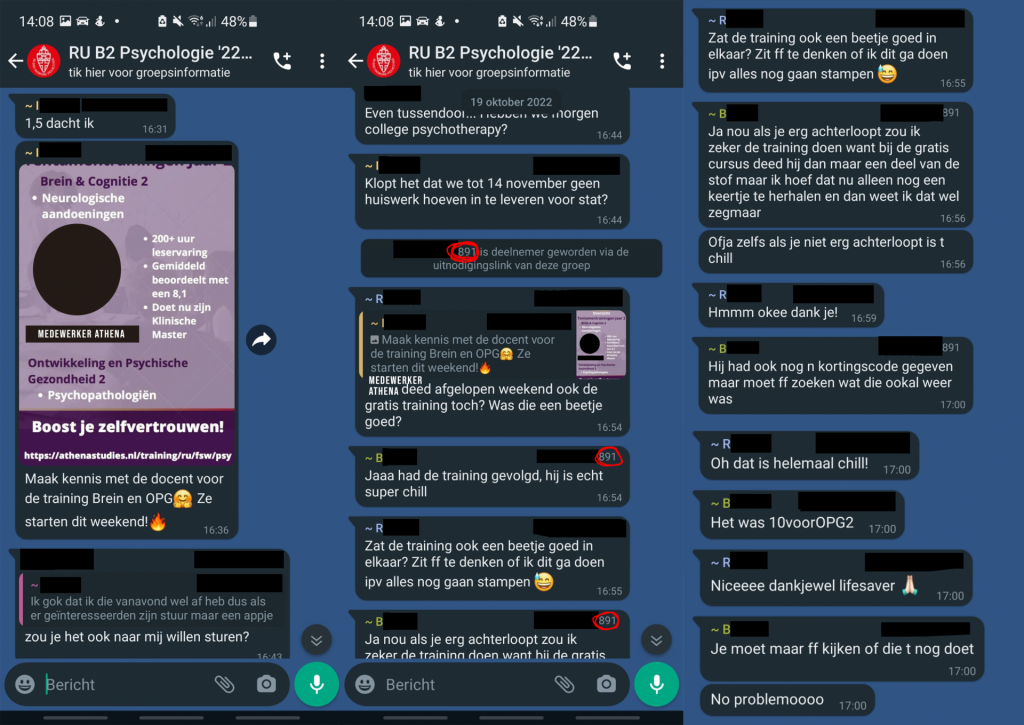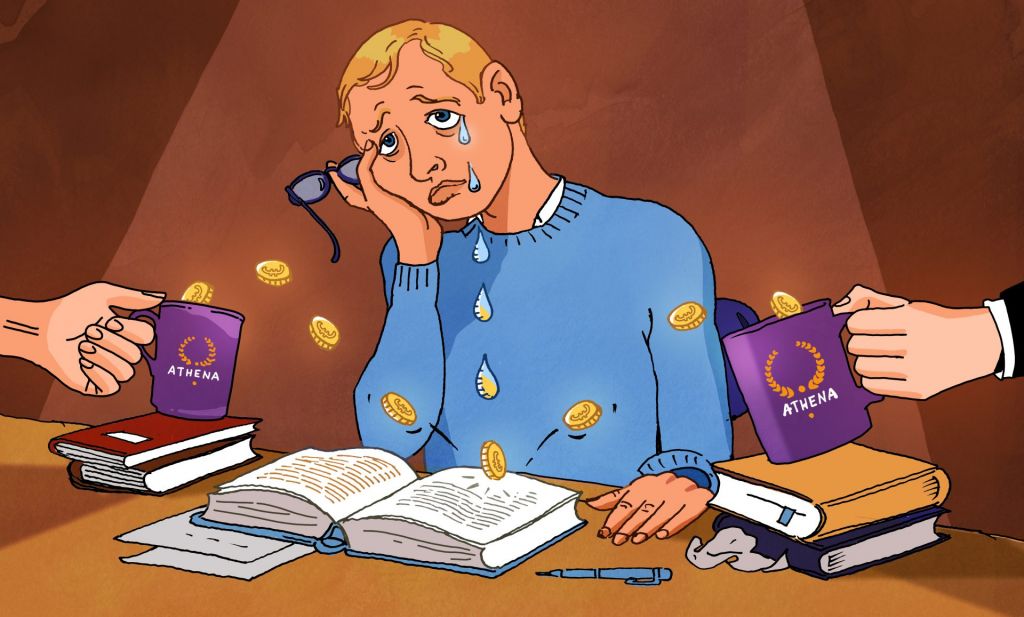Study association rejects money to halt collaboration with controversial AthenaStudies
-
 Illustratie: Ivana Smudja
Illustratie: Ivana Smudja
Over the past weeks, the commercial summary and exam prep provider AthenaStudies has been in hot water, with allegations against the company being raised by multiple Dutch universities. At Radboud University, the company has long been controversial, but financial offers by the Psychology department to study association SPiN, asking them to end their ongoing promotion of Athena have been turned down. What happened?
For the past few years, AthenaStudies has dominated the market of extracurricular study aid at Radboud University. The Amsterdam-based company provides literature summaries and examination prep courses all over the Netherlands, primarily targeting larger studies, such as Psychology, Law or Business Administration. A last-minute life-saver for many students during exam season. But recently, Athena has been in hot water.
According to investigations by the University of Groningen’s UKrant, Athena ambassadors have posed as students in some study-related WhatsApp groups, initiating staged conversations about Athena courses and indirectly advertising the company. Additionally, Erasmus University Rotterdam is now exploring legal measures against the company’s use of its logo in WhatsApp groups targeting their students.
As screenshots obtained by Vox show, similar practices of feigned conversations in WhatsApp groups, played out by Athena ambassadors, have taken place in Psychology and Law groups at Radboud as well. Additionally, one Law student reports that Athena sent an ‘order confirmation’ via email, despite him not having ordered anything at the company. It turned out to just be an advertisement.

Financial offer
At Radboud, one of Athena’s partners is the Psychology study association SPiN. According to Psychology programme director Rob Holland, the Psychology department has recently made an offer to its study association to cover the annual income SPiN makes from their collaboration with Athena – provided they were to end their partnership with the company.
After all, a total of 5.822,29 euros for the study year 2021-2022. SPiN has since rejected the department’s offer, says Holland, and continues to sell Athena summaries. According to their own financial plan, the study association expects even higher earnings from their collaboration with Athena for the current study year.
Fear culture
For Freek Oude Maatman, who started as a Psychology student at Radboud and is now a lecturer and course coordinator within the Psychology bachelor’s, buying a summary is not a bad thing per se: ‘A summary can give some students an extra handhold on the material and can be useful as an additional tool to check whether you understand something.’
A sort of security that many students are longing for: ‘I think there is a fear culture in academia right now’, Oude Maatman says, especially with increasing financial pressures and students having to meet BSA requirements – and Athena, according to the lecturer, is benefitting from it. And quite successfully so. Right now, the company is preparing to expand its reach from the Netherlands to Germany, Belgium, and the UK.
‘There is a fear culture in academia right now’
But it is not the company’s success in benefitting off of students’ fears itself that concerns Oude Maatman the most: ‘As a lecturer, I have no quality control and I have no idea what they (Athena tutors, ed.) are explaining.’ And especially with commercially organized courses at a larger scale, a mistake, says Oude Maatman, can spread rapidly throughout the student body. Especially when course content is being updated, there is a high risk that students receive outdated information through third-party providers.
Copyright
Oude Maatman’s fear turns out to be justified. ‘Most of us just reuse the same PowerPoint, even when the course changes, the same goes for summaries. They are only adjusted if the course suddenly introduces a new book,’ says one former Athena employee, who would like to remain anonymous out of fear that the company might pursue legal measures. According to the former employee, course content is not updated because Athena only pays its student tutors for hours taught, not for adapting the tutorials’ content every year.
‘Most of us just reuse the same PowerPoint, even when the course changes’
Athena’s literature summaries for Psychology at Radboud, available directly via Athena’s website and SPiN, cost between 13,95 and 15,95 euros. For 43,20 euros, students can buy the entire summary package for the second year. But while, according to the former employee, regularly updated course material is missing in the summaries, the summaries appear to contain scans and photographs of copyrighted lecture book material.
Disappointed
‘I’m disappointed’, says programme director Holland when asked about SPiN turning down the faculty’s money to stop their collaboration with Athena. Of course, the programme director understands that it is nice to have enough funds available to set up extracurricular activities besides the study. But for him, the increasing reliance of SPiN on Athena is worrying: ‘It’s really important to get to know each other through social activities, organized by study associations. But if financing those activities is hijacked by a commercial organization, that’s a shame.’
‘We would like to offer a study for everybody’
Additionally, the increasing presence of commercial agencies offering courses and summaries poses a different and more fundamental problem for the professor: ‘We would like to offer a study for everybody and those additional offers by commercial companies inflate costs for students.’ A cost inflation for additional help that not every student can afford. One way to counteract this, according to Holland, is to change the focus of the curriculum. For him, this entails students not predominantly studying to pass exams and forgetting most of the content afterwards, but learning and retaining information for the longer term. How the faculty is going to accomplish this, says the professor, remains a challenge, but it is something that is currently debated within the programme.
Decline to comment
In the meantime, the Psychology study association SPiN continues to sell Athena summaries. When approached by Vox, the SPiN board declined to comment on the reasons for their continuous collaboration with the controversial summary and course provider, despite the offer of faculty funds.
‘We are of the opinion that our relationships with both Athena and the University about this topic should not be reviewed in the media, but directly with both parties,’ read the final email by SPiN Secretary Tjerk Adema. A conversation Holland would also be interested in: ‘I was a little surprised when they declined the money, but I am always open to discussing with SPiN how we can help psychology students in their studies.’ And Athena, according to Holland, is not needed for that.
When contacted by Vox, Athena did not reply to a request for comment concerning both their summaries’ content and the allegations raised by their former employee.






T schreef op 28 februari 2023 om 18:41
I think its funny how Athena is getting the attention, when you still have profesors that write their own books for subjects and then force students to buy them at high prices!
D schreef op 30 maart 2023 om 16:39
You’re obviously involved in this entire sting right? 😉 Btw your grammar and spelling is pretty representative of the summary quality from your employer
B schreef op 17 maart 2023 om 09:25
Athena courses are often disappointing because of their poor quality summaries and the overall organisation of tutors and course participants. Additionally is their spam in WhatsApp groups annoying. I’m wondering how long they want to continue like that